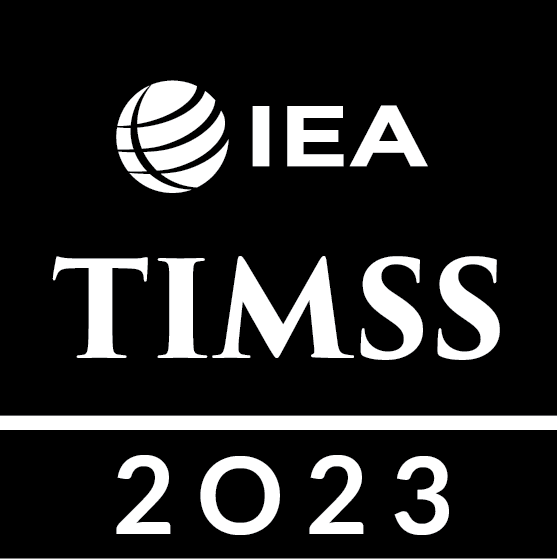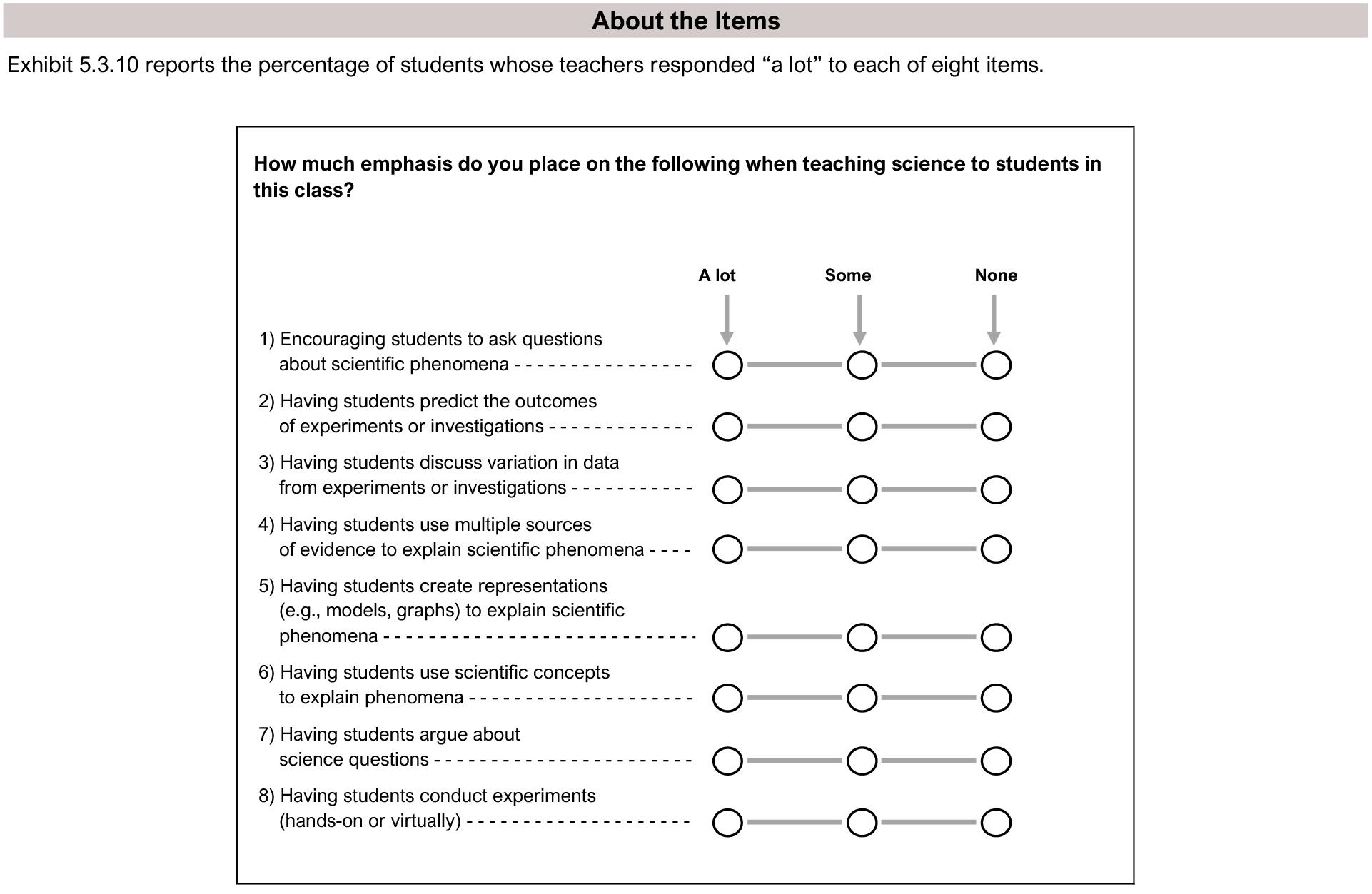Student Bullying
Classroom Environment
Teachers Emphasize Science Inquiry – Grade 8
The degree to which teachers emphasize different components of science inquiry in their teaching varies internationally. Science teachers were asked about the emphasis they place on various aspects of inquiry during science lessons. Eighth-grade teachers responded to eight items about their emphasis on activities such as encouraging students to ask questions about scientific phenomena or having students predict the outcomes of experiments or investigations, reflecting the increasing complexity of science teaching as students progress through school (Exhibit 5.3.9).
Exhibit 5.3.10 presents the percentages of eighth-grade students whose teachers reported placing “a lot” of emphasis on the science inquiry practices. On average and within many countries, the most frequently reported science inquiry practices emphasized in the eighth grade were “ask questions about scientific phenomena” and “predict the outcomes of scientific experiments or investigations.” On average internationally, 73 percent and 62 percent, respectively, of students had teachers who reported they emphasized these practices “a lot.” The least commonly reported science inquiry practices emphasized, on average, were “use multiple sources of evidence to explain scientific phenomena” and “create representations to explain scientific phenomena.” Only 42 percent and 40 percent, respectively, of students had teachers who reported they emphasized these practices “a lot.”
Read More
Teachers Emphasize Science Inquiry – Teachers’ Reports
( ) Standard errors appear in parentheses. Because of rounding some results may appear inconsistent.
An “r” indicates data are available for at least 70% but less than 85% of the students.
An “s” indicates data are available for at least 50% but less than 70% of the students.
An “x” indicates data are available for at least 40% but less than 50% of the students—interpret with caution.
Scroll Up

